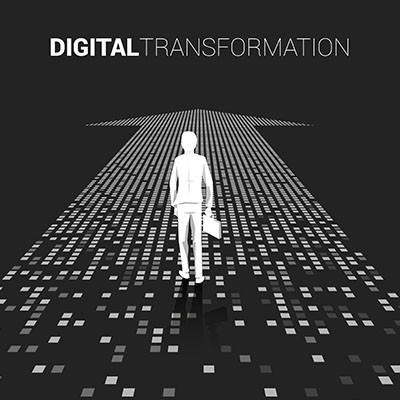The more you seek to understand your business, the better you are going to be able to run it efficiently. No, this was not Confucius, although it sounds similar to something he would get behind. The more efficient a business becomes the less it will spend. How does this work? Today, we’ll unpack what it takes to cut your costs without hurting your business.
ImageSys LLC Blog
For every technology that we use daily, there was once a time when it was brand-spanking-new. Think about when the Internet first became commonplace. People had questions that were seemingly endless, and even computers and electricity were once novel concepts. Let’s think about some more modern inventions that might someday be just as commonplace as some of the tools we use in our daily lives.
Let me ask you a question: would you see The Mona Lisa, The Starry Night, or Girl with a Pearl Earring as the masterpieces they are considered today if they were actually created using artificial intelligence? While it might seem like a silly question, it is one that the results of the recent Colorado State Fair’s fine art competition—where the first-place winner was created using AI—leads us to ask.
We often discuss how we can help you make your business processes more efficient, but we want to refocus on how you can implement these solutions through the use of digital technologies and transformation. How does new technology affect your staff, and what can you do to ensure that these new tools aren’t impacting your employees in unforeseen ways?
Picking up on the fact that the workplace is changing isn’t exactly difficult nowadays—the past few years of remote work and mass resignations have made it abundantly clear that today’s employees are looking for more control in terms of balancing their work lives with their personal ones. One means of doing so that has gained steam is the idea of a shorter workweek.
We’ve seen artificial intelligence used more and more commonly in businesses, largely in the form of machine learning. What’s even nicer is that it is becoming more and more accessible to smaller businesses as well. Let’s discuss how a small business might put AI to use, or in other words, how you can get started doing so.
Moore’s Law may have been prophetic for its time, but it was bound to run out of steam eventually. In 1965, Gordon Moore predicted that transistors inside of a dense integrated circuit would double every 18 months, and at the time, it seemed like an ambitious prediction at best. All these years later, however, computing speeds are doubling every 18 months, just as predicted, but technology may have finally caught up with this prediction. How will technology’s growth change moving forward?
There are literally thousands of pieces of technology available that accomplish something positive for your business. Whether they are communications tools that help your team collaborate and build a better client-support system, gadgets and software to help streamline your team’s ability to get work done, or devices to help advance the company’s mobile strategies, considering what you can do with innovative new technologies is a responsibility of a forward-looking executive or small business owner.
Being future-minded means that you are always on the lookout for the next big thing and how it might affect your business, be it technology or otherwise. Many developing technologies might seem like they will never see the light of day, but the reality is that many of them do have the potential to see business applications in some capacity. Let’s take a look at some of these oddball concepts and how they might transition to business use in the future.
In 2015, Microsoft seemingly confirmed that Windows 10 would be the last version of Windows. This prompted users and industry professionals to believe that we would not be receiving Windows 11 anytime soon. With a major update to the Windows 10 operating system on the horizon, some folks aren’t sure what to think. Still, what does this update to Windows 10 mean for your business?
Artificial intelligence has taken the world by storm, and with recent improvements to automated technology and machine learning, it should be clear that this technology is not going anywhere anytime soon. With proper implementation, artificial intelligence can help your business cut costs, improve operations, and mitigate unnecessary or repetitive tasks, all of which compounds to create a smoother and more manageable workload for your employees.
With the advent of more advanced technology, many workers are understandably concerned about automation and the impact it could have on their jobs. Computers systems grow more advanced each and every year, leading to improvements in artificial intelligence that have unskilled workers in certain industries where automation is king. Let’s explore some of these concerns, including why some of them have merit while others may be a long way off yet.
Of all the technologies that have been proposed and developed over the years, few have tickled our collective imaginations the way that the concept of artificial intelligence has. For this reason, many small and medium-sized business leaders may write off AI as science fiction, rather than a solution to their operational challenges. However, the technology is currently finding its footing in practical use—more than proving its worth and adaptability in the process.
Have you ever listened to someone talk about something that they really have a good handle on? One of two things will happen. First, their language will be filled to bursting with buzzwords and jargon that—while they clearly know what it all means—is confusing for a layperson. We can be guilty of this ourselves, so we wanted to take a few moments to take the second option and discuss what they mean in more common terms… and, despite how others may use them, what they don’t.
If there was anything for businesses to learn in the past year, it had to be the importance of operational flexibility—after all, a raging pandemic tends to keep people out of the office. Now, with multiple vaccines in production, it seems apparent that these restrictions will soon be eased… but will any of the changes in business operations remain, even after they are necessary?
The influence of COVID-19 has permeated through most aspects of daily life, from the way we live, communicate, work, and for many, the way we learn. As schools must remain closed for now, that is not to say that the learning process will necessarily be suspended for all. Many institutions already have the necessary tools in place to continue their students’ education in the form of remote learning, but for many, this is uncharted territory.




















